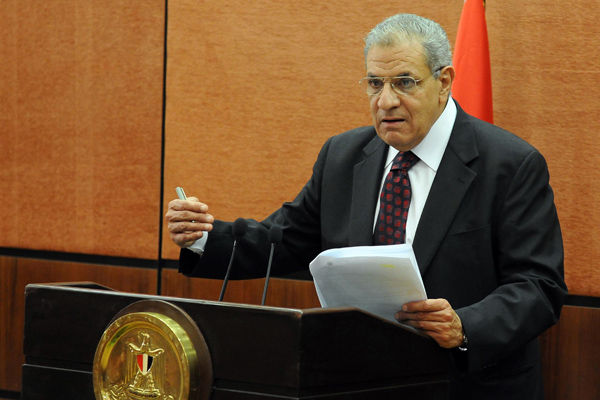Twenty days are left to welcome the new Fiscal Year (FY) in Egypt, while the budget proposal of 2015/2016 is still under negotiations within the government committees, Maye Kabil reports.
The Prime Minister, Ibrahim Mahlab, promised that the budget proposal will be submitted to the president mid-June, and declared in its final version before the beginning of the new fiscal year, in July.
“The budget target is to boost economic growth to 4.3 per cent, and to control the financial deficit to be between 9.5 to 10 per cent of the Gross Domestic Product (GDP), one per cent reduction from the current year levels,” Sherine El-Shawarby, professor of economics at Cairo University and former assistant of finance minister, told Middle East Observer. This would contribute in eliminating the public debt to 92 per cent of the GDP, according to the pre-budget statement published few months ago.
Achieving these goals is a challenge for the government, taking into consideration the increasing public spending and the limited sources of revenues targeted.
The gap between public spending and public revenues reached LE230.9 billion during the first nine months of the current FY, representing 9.9 per cent of the GDP.
Under the new Constitution, the government has to increase its spending on health, education and research, to reach the target of 10 per cent of the GDP by the FY 2016 / 2017.
But to reduce the financial burdens, the government is aiming to lift gradually subsidies on energy, either on fuels like gasoline and diesel or on electricity. Such steps started to be taken last year, and were announced to be continued in the new fiscal year. However, many official statements lately assured there will be no raise in fuel prices.
Some decisions that were taken earlier to raise the public revenues were either changed or delayed. The taxes law was changed, cancelling the five per cent taxes that were imposed on the wealthiest exceptionally for three years, after less than one year of its implication.
The second change was reducing the highest taxes to 22.5 per cent on persons and companies, down from 25 per cent.
Lately, the government decided to postpone the implementation of the capital gain tax for two years. This tax was estimated to raise public revenues by LE3.5 billion.
The ministry of finance started during the current FY to take measures to spread information about budget and financial policy by issuing a simplified version called “citizen budget”. However, in her opinion, there is a lack of communication regarding the new budget and the reasons of its delay.
“The ministry of finance took some steps to raise public knowledge of the State’s fiscal policy, especially that the minister, Hani Kadri, announced before that “the delay in electing a new parliament could affect budgetary transparency,” Shawarby noted
In this context the ministry released the “citizen budget” and issued the pre-budget statement, which both were demanded long time ago to increase the budgetary transparency. This concept has been receiving international attention as an indicator of democratic development and a tool to eliminate corruption.
According to the 2012 international budget transparency index, Egypt’s score deteriorated from 49 out of 100 to 13, putting it among the worst countries for the availability of information.
A study of budgetary transparency by the Egyptian Initiative for Personal Rights (EIPR), a Non Governmental Organisation (NGO), was published last December, indicated that deterioration was a result of the absence of parliament during most of the period covered by the index. “This meant there was no effective oversight,” the report mentioned.
The EIPR study does not only emphasise the importance of the availability of information, but also sheds light on the contents of the budget. “Giving expenditure figures without meaningful breakdowns was not a way of encouraging discussion or supervision,” it said.
In all cases, releasing the pre-budget statement and discussing it with civil society would contribute to improving Egypt’s position on international measures for budgetary transparency, according to the International Budget Partnership (IBP).
The IBP collabourates with civil society around the world to analyse and influence public budgets in order to reduce poverty and improve the quality of governance.
“The next step is to move to the programmes and performance budget. The constitution obliges us to spend a lot on public health and education. We need to know that this amount of money is being spent in the right places,” the minister said formerly.


